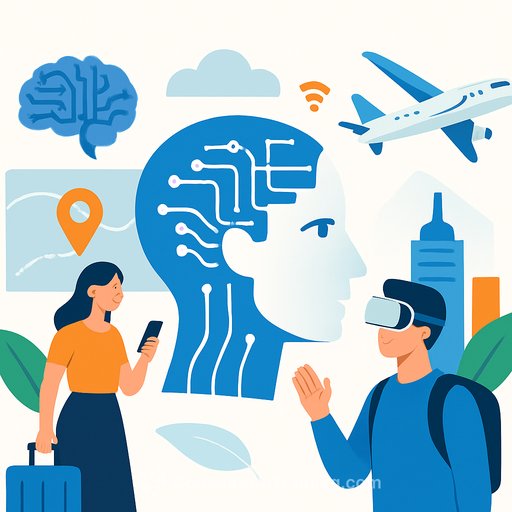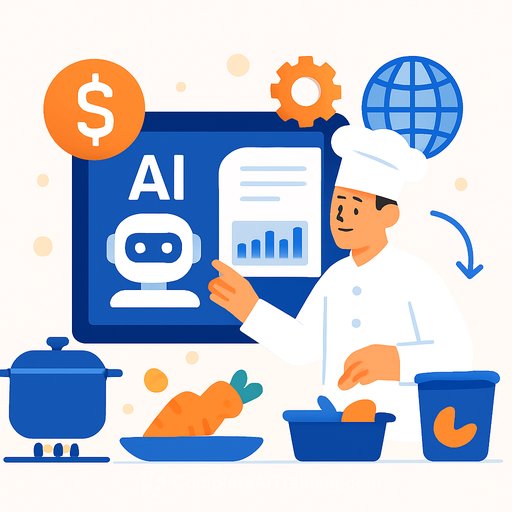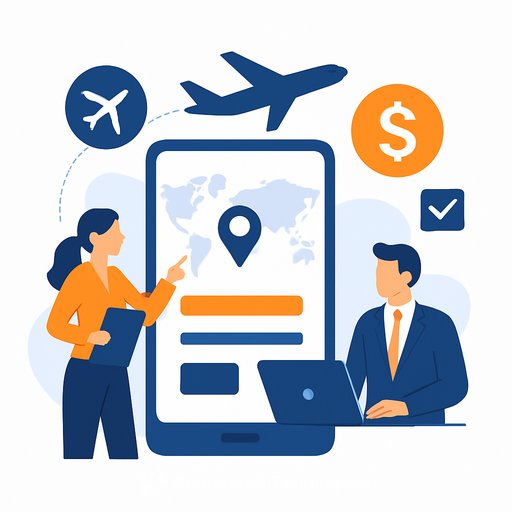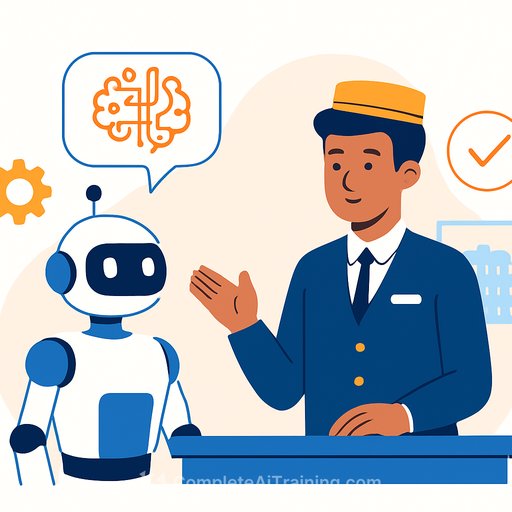Tourism's Tech Shift: A Practical Playbook for Hospitality and Events
The tourism sector is moving fast. What guests used to tolerate-friction, guesswork, queues-now feels outdated. AI, VR, data, and personalisation are resetting expectations around ease, speed, and engagement.
For hospitality and events teams, this is less about gadgets and more about systems that quietly remove friction and create moments people remember.
Personalised Planning That Earns Loyalty
AI assistants, chatbots, and voice interfaces are becoming the first touchpoint. They suggest itineraries, book tickets, recommend restaurants, and handle changes without bouncing guests between departments. Domain-specific language models make suggestions feel relevant-not generic.
Whether it's a peaceful mountain retreat or a high-energy city weekend with kids, the tech can adapt to different intents and budgets.
- Embed a conversational assistant on your site, app, and WhatsApp. Train it on FAQs, inventory, floor plans, and local partners.
- Offer voice options for accessibility and speed. Keep a "privacy center" where guests can view, edit, or delete preferences.
- Use first-party, consented data to drive upsells that help (early check-in, adjoining rooms, kid-friendly dining) instead of guesses.
Seamless Booking and Operations
Reservations, check-in, and concierge are moving from counters to conversations. AI handles payments, ID checks, and common requests with low error rates. On the back end, predictive analytics helps set prices, assign rooms, and forecast demand so you're ready before the rush hits.
- Connect your chatbot to PMS/CRS and payments so it can complete actions, not just answer questions.
- Run demand forecasting and dynamic pricing with clear guardrails: minimum/maximum rates, fairness rules, blackout dates.
- Measure drop-offs in the booking flow and fix friction spots weekly. Small tweaks add up.
Immersive Previews and Virtual Tourism
VR/AR lets guests "test drive" a stay or event before committing: venue walkthroughs, room layouts, views, and even cultural workshops. It's especially helpful for older guests, people with disabilities, or anyone who wants to reduce uncertainty before booking.
As you build these experiences, use privacy-first practices. Secure GenAI patterns and sovereign AI options help keep guest data under control.
- Publish 360° venue and room tours with clear measurements and capacity notes. Add AR overlays for seating plans and AV setups.
- Offer virtual cultural sessions with local partners-short, high-value previews that convert to onsite bookings.
- Make accessibility a standard, not an afterthought. Guidance is available from the UNWTO on inclusive experiences: UNWTO Accessibility.
Health, Safety, and Contactless by Default
Mobile check-in, digital keys, and crowd-density monitoring are now normal, not novelty. AI-driven sanitation schedules and occupancy dashboards keep operations tight and guests confident.
- Adopt digital keys and self-check kiosks to cut queues and reassign staff to higher-value service.
- Use occupancy heatmaps to manage crowding at breakfast, pools, lifts, and expo halls.
- Let guests control wellness features in-app: quiet floors, low-allergen rooms, or activity suggestions aligned with wearable data (opt-in).
Sustainability and Smart Resource Use
Energy, water, and waste tracking are becoming part of the booking decision. Predictive analytics can reduce utility spikes, prevent over-ordering, and surface green alternatives that guests appreciate.
- Install smart meters and connect them to dashboards the team checks daily. Tie savings to team incentives.
- Show guests their stay's estimated footprint and offer easy swaps: linen preferences, EV charging, low-impact activities.
- Align initiatives with global guidance: UNWTO Sustainable Development.
What's Next: Integrated, Intelligent Travel
Expect AI-guided city walks, smart luggage tracking, and seamless handoffs across transport, venue, and accommodation. Guests will expect personalisation without friction and digital interactions that feel safe and respectful.
- Set clear data governance: consent flows, retention limits, audit logs. Prefer sovereign AI options where needed and apply Secure GenAI patterns to protect PII.
- Choose systems with open APIs so you can plug in new tools without rebuilding.
- Invest in staff training. Tools are only as good as the team using them.
Human-First Hospitality
Tech should amplify hospitality, not replace it. Let automation handle repetitive tasks so your team can focus on warmth, creativity, and solving real problems in the moment.
- Set a goal: reduce routine admin time by 20% and reinvest it in proactive service.
- Track the right signals: response time, issue resolution, upsell acceptance, and guest sentiment after staff interactions.
Quick Start Checklist
- Map your end-to-end guest experience. Flag friction and delays.
- Pilot a conversational assistant for FAQs, bookings, and changes.
- Roll out mobile check-in and digital keys at one property or event first.
- Turn on demand forecasting and dynamic pricing with guardrails.
- Publish a 360° venue/room tour and an AR seating plan.
- Set up occupancy dashboards for crowd management.
- Launch a sustainability dashboard and guest-facing impact prompts.
- Train staff on AI tools, data privacy, and service recovery.
Technology has moved from backstage to center stage in tourism. The winners will blend personalisation, immersive previews, efficient operations, and sustainability-without losing the human touch.
If you want structured, job-focused upskilling for your team, explore practical programs at Complete AI Training.
Your membership also unlocks:





